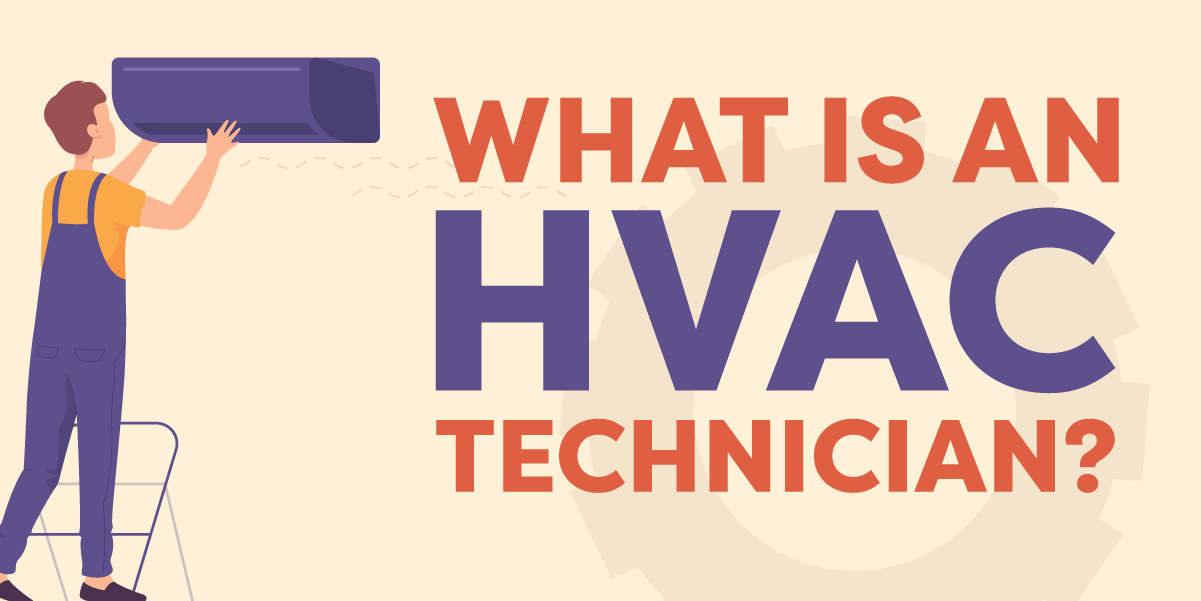HVAC stands for “heating, ventilation, and air conditioning.”
HVAC technicians work with central heating and cooling systems, furnaces, boilers, air conditioners, heat pumps, ventilation systems, and commercial refrigeration units. They understand the principles of thermodynamics, refrigeration, electrical circuits, and airflow dynamics.
They apply their knowledge to install, maintain, and repair complex HVAC systems that regulate building temperature and humidity, control airflow, and circulate clean and fresh air.
The Importance of HVAC Systems
Today, we take indoor climate control for granted. But imagine living in the California desert without HVAC. Or in the neighboring states of Arizona and Nevada, where summer temperatures can soar over 120 degrees F. Vast swaths of the USA were sparsely populated until the introduction of affordable air conditioning.
Besides providing comfort, HVAC systems also contribute to indoor air quality. They filter pollutants, dust, and allergens, creating a healthier environment. Properly functioning HVAC systems are critical in hospitals and many commercial buildings, where air quality directly affects health and safety, the inventory’s shelf life, etc.
Essential Skills & Attributes for an HVAC Technician
Good HVAC technicians should have the following skills, qualities, and characteristics:
- Engineering & Technical Know-How: They must understand thermodynamics, electrical circuits, airflow dynamics, and refrigeration principles to troubleshoot complex systems and make accurate repairs.
- Problem-Solving Abilities: HVAC technicians often face complex issues that demand logical thinking and problem-solving skills. They must be able to work through the process of elimination to identify and correct problems.
- Attention to Detail: Technicians must pay close attention to components, wiring, and connections to ensure proper installation and repair.
- Strength & Physical Stamina: HVAC work can be physically demanding, requiring technicians to lift heavy equipment, work in tight spaces, and stand for extended periods.
- Time Management: HVAC technicians often work on multiple projects simultaneously. They must prioritize tasks, manage their time effectively, and stay organized.
- Communication: HVAC technicians interact with clients and team members regularly. They need to explain technical concepts, understand client concerns, and collaborate with others.
Educational Requirements
While some technicians learn on the job or through apprenticeships, completing a formal HVAC program provides a solid foundation and enhances job prospects.
Technical and trade schools, community colleges, and vocational institutions offer HVAC programs covering electrical systems, refrigeration, air conditioning, heating, and ventilation. Students also receive hands-on training to develop practical skills.
Licensing & Certifications
Licensing for HVAC technicians varies by jurisdiction. In some areas, technicians must obtain a license to work independently, while other jurisdictions may require licensing for specific types of HVAC work, such as refrigeration or air conditioning.
Certifications allow HVAC technicians to demonstrate their expertise and stand out from a general handyperson. Certified HVAC technicians often have an edge in the job market and may command higher salaries. Employers value certifications because they indicate a commitment to professionalism and continuous learning.
Working Conditions
HVAC technicians work in various environments, including residences, commercial buildings, industrial facilities, and construction sites. They often work outdoors when installing or servicing equipment.
Working conditions can be challenging. Technicians may be exposed to extreme temperatures, cramped spaces, and heights. Technicians must adhere to safety protocols and wear protective gear to minimize risks of injury.
The nature of the work often requires HVAC technicians to be on-call for emergencies, including evenings, weekends, and holidays. A typical workweek involves long hours and may include travel.
Nevertheless, the job of an HVAC technician can be rewarding, as it pays well, is always in demand, and usually involves a transaction with a happy customer and outcome.
Daily Tasks of an HVAC Technician
Some everyday tasks that technicians perform include:
- Installing HVAC systems, including ductwork, electrical wiring, and refrigerant lines.
- Conducting routine maintenance and inspections to ensure system efficiency and prevent breakdowns.
- Diagnosing and troubleshooting HVAC system issues, such as poor performance or malfunctioning components.
- Repairing or replacing faulty components, like compressors, motors, or thermostats.
- Testing system functionality and making necessary adjustments for optimal performance.
- Replacing filters, cleaning coils, and lubricating moving parts to maintain system efficiency.
- Keeping accurate records of performed tasks, including maintenance schedules, repairs, and parts used.
- Staying updated on industry advancements, new technologies, and best practices.
HVAC Specializations
Few technicians work in all areas of HVAC. Most technicians choose one or two specialties.
- Residential HVAC technicians primarily work in homes, installing, maintaining, and repairing heating and cooling systems. They may also handle ventilation and air quality issues specific to residential settings.
- Commercial HVAC technicians deal with larger-scale systems in commercial buildings like office complexes, retail stores, and hotels. They are well-versed in the complexities of managing HVAC systems in these settings.
- Industrial HVAC technicians work in industrial facilities, including manufacturing plants, warehouses, and factories. They are familiar with industrial-grade equipment and specialized systems required for large-scale operations.
- Refrigeration technicians focus on installing, maintaining, and repairing commercial refrigeration units in restaurants, supermarkets, and medical facilities.
Conclusion
HVAC technicians are highly skilled professionals who play an integral role in keeping our indoor environment comfortable and safe. They have specialized knowledge, technical know-how, problem-solving abilities, and physical stamina to install, maintain, repair, and troubleshoot complex HVAC systems. HVAC is a demanding job with long hours and challenging conditions requiring dedication and commitment.
But the rewards of working in HVAC are great, with competitive salaries and a sense of satisfaction from helping people enjoy the comfort of their homes or businesses.

